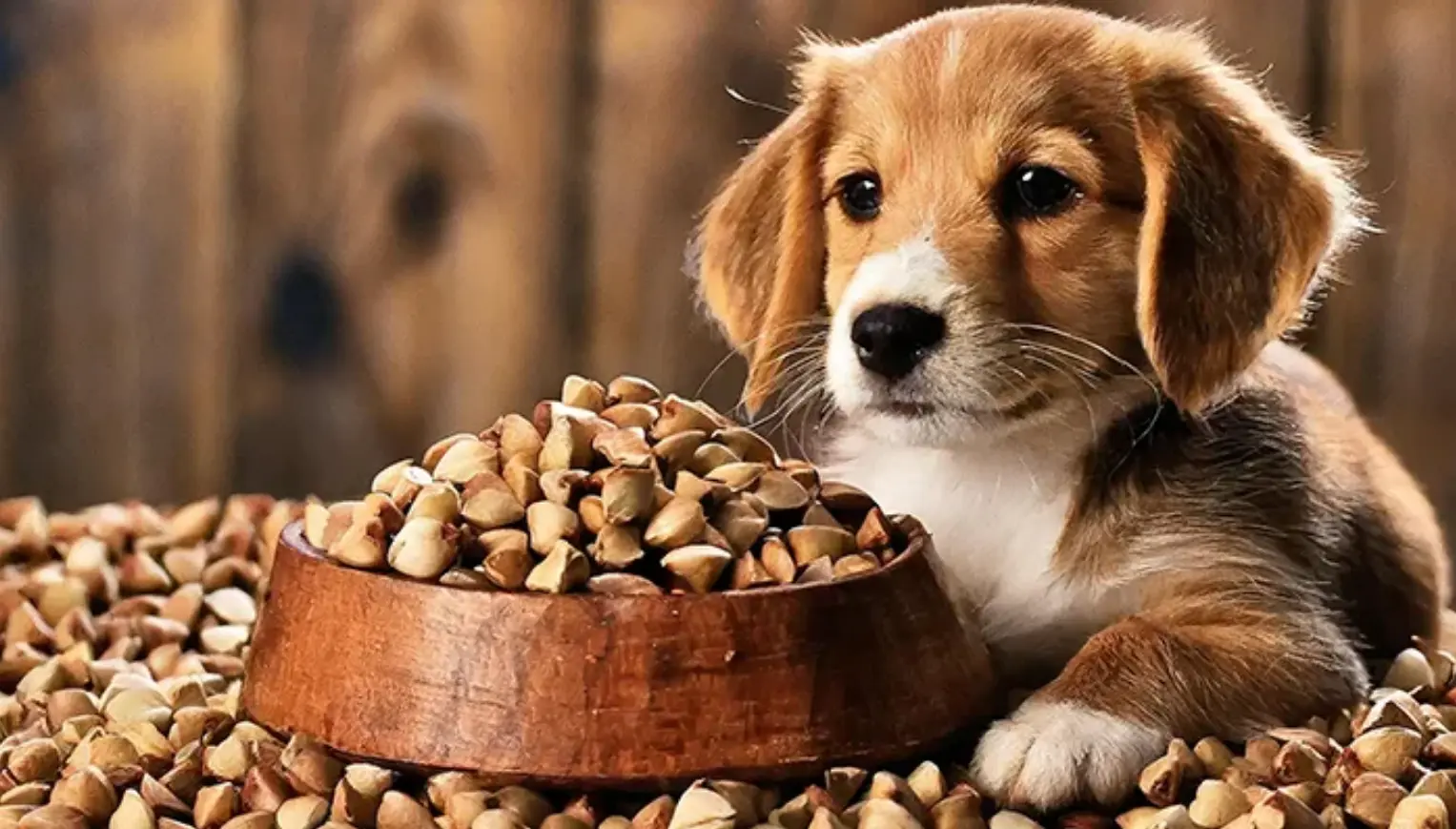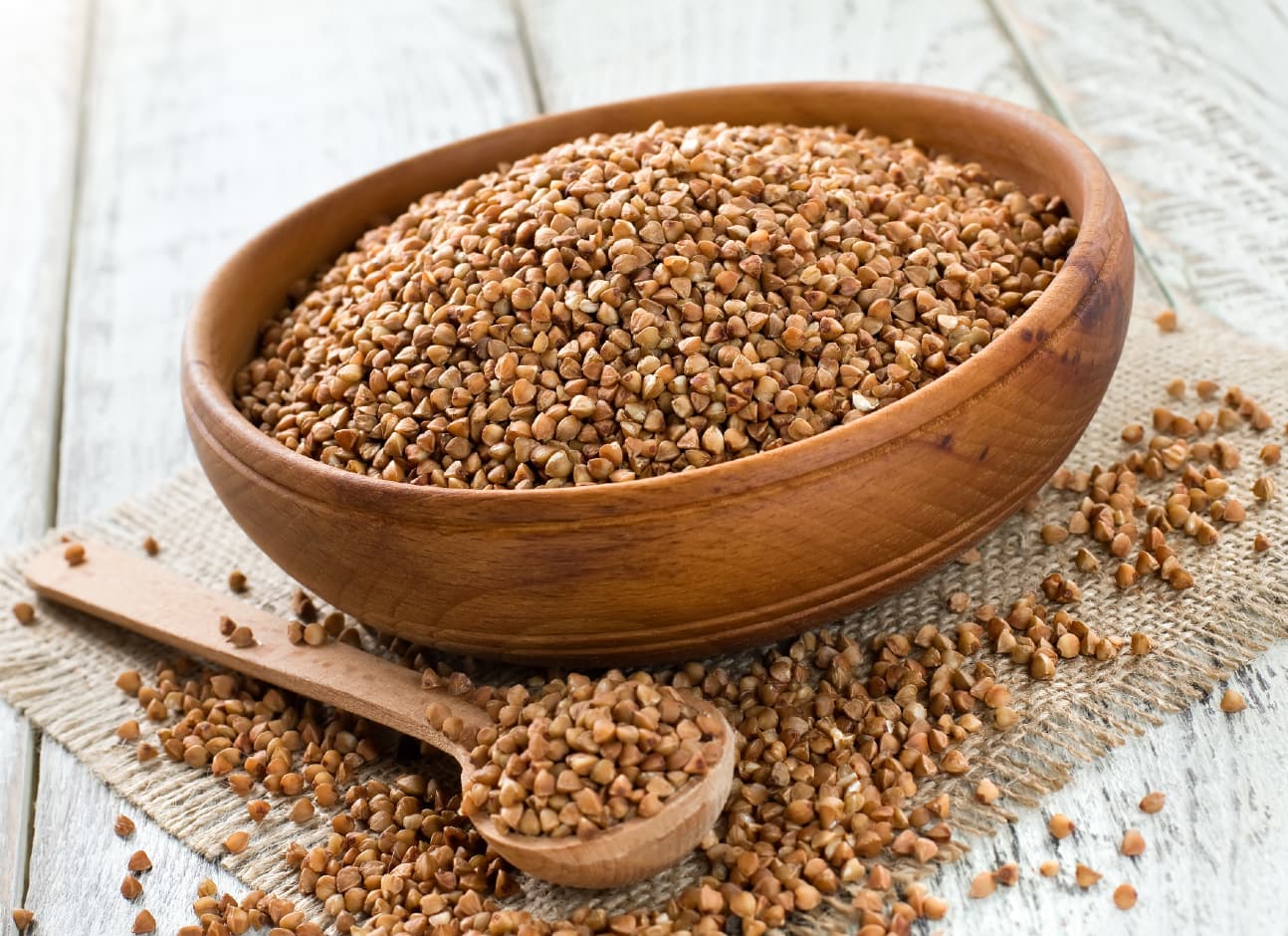Reviewed by Dr. Luciano de Gatica
Updated on 07/22/2024
Reading time 5 min.
Overview
Severity: Low
Life stage: All
Buckwheat is a dark-leaved plant that produces seeds and grain. Buckwheat is often used as animal feed and has been reported to be safe for dogs to eat. There are many types of Buckwheat, but only one type is safe for dogs and cats. This article will discuss the advantages, risks and benefits of feeding your dog or cat buckwheat.

Dog and buckwheat
What Is Buckwheat?
Buckwheat is a grain that’s not related to wheat. It contains a high amount of protein, which dogs love! Buckwheat is gluten-free and can be used in many recipes as an alternative to wheat flour or corn starch.
Buckwheat has been known to cause allergic reactions in some people, but this isn’t the case with dogs (or humans). If you’re concerned about your dog’s allergy symptoms after feeding him buckwheat items like biscuits or treats made with it, talk with your vet first before making any adjustments to his diet—and then make sure he gets plenty of exercises so that he doesn’t develop even more health problems due to overuse!
Can Dogs Eat Buckwheat?
Buckwheat is not toxic to dogs. It does not cause them any discomfort, but dogs can eat it if they want to. Buckwheat has many positive properties that make it an excellent alternative to other grains such as wheat, corn and rice. Buckwheat contains a high amount of protein and fibre that helps keep your dog healthy while providing energy during exercise sessions (or even everyday life). Buckwheat also contains vitamins A through K, which are important for maintaining good health in humans and animals.
If you’re wondering whether your pup might enjoy eating buckwheat flakes in moderation, then we’d say go right ahead—be sure not too many treats contain this ingredient; otherwise, they could upset their tummy later down the line!
How much should I feed my dog?
As a snack, give your dog a small amount of Buckwheat. You can use whole-grain Buckwheat or grated raw or cooked Buckwheat (see below).
If you are feeding your dog the flour and water mixture as a meal, feed them more than they usually eat. They may need to adjust their portions to make room for the new food they’re getting.
Suppose you’re mixing in some buckwheat with their regular diet. In that case, they mustn’t become malnourished from overeating at once.
And no matter how nutritious an ingredient is, it may not be as beneficial when mixed into other foods or eaten alone without enough calories from other sources (like meat and vegetables). – says Dr. Luciano de Gatica
Conclusion
If you want your dog to eat Buckwheat, you must give them a good diet. This means providing them with various foods, including vegetables and other healthy treats. If possible, include some raw meat or bones with their meals, so they don’t go hungry!
Turn mealtime into a treat with our exquisite range of foods. Check out our Food Delivery options!

Share this, choose your platform!
Writen by
Dr. Luciano de Gatica
DVM
Luciano de Gatica graduated in 2005, as a Doctor of Veterinary Medicine, from Universidad Nacional de La Plata (UNLP) in Argentina. He gained extensive experience in the field of…

